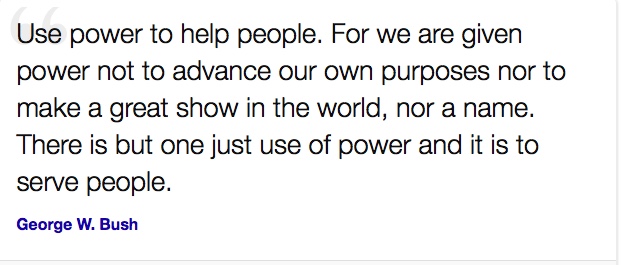8 Sins You Commit Every Time You Look at Porn
You commit the sin of idolatry. All sin is idolatry, an attempt to find joy and satisfaction not in God himself but in what God forbids (Exodus 20:3-6). Matt Papa says it well: “An idol, simply put, is anything that is more important to you than God. It is anything that has outweighed God in your life—anything that you love, trust or obey more than God—anything that has replaced God as essential to your happiness.” In the moment you begin to look at porn, you have allowed it to replace God as essential to your happiness. You’ve committed the sin of idolatry.
You commit the sin of adultery. This is the most obvious sin you commit when you use porn. In Matthew 5, Jesus draws a clear connection between lust and adultery. “You have heard that it was said, ‘You shall not commit adultery.’ But I say to you that everyone who looks at a woman with lustful intent has already committed adultery with her in his heart” (27-28). Pornography is lust and exists to foster lust. But lust is simply a form of the wider sin of adultery, the deed or desire to be sexually involved with someone other than your spouse.
You commit the sin of deceit. Deceit is the act of concealing or misrepresenting your actions. Because pornography generates shame, you will hide it, cover it up or refuse to confess it. When you erase your browsing history to keep your parents from finding out, when you use it in secret to keep your spouse from learning about your addiction, when you refuse to proactively confess it to an accountability partner, when you participate in the Lord’s Supper even though you are unrepentantly given over to it, you are practicing deceit. And the Bible warns of the dire consequences: “No one who practices deceit shall dwell in my house; no one who utters lies shall continue before my eyes” (Psalm 101:7).
You commit the sin of theft. The porn industry is being badly damaged by piracy, by people illegally distributing copyrighted material. Some estimates say that for every one video that is downloaded legally, five are downloaded illegally. Fully 60 percent of all illegal downloads are of pornographic content. While we can be glad that the industry is in dire straights, we have no right to participate in such theft, for God says clearly, “You shall not steal” (Exodus 20:15). When you use porn, you are almost definitely watching material that has been stolen and, in that way, you are participating in its theft.
You commit the sin of greed. Sexual sin is greed, a form of taking advantage of another person to defraud them of something that is rightly theirs. In 1 Thessalonians 4, Paul insists “that no one transgress and wrong his brother in this matter [of sexual sin], because the Lord is an avenger in all these things, as we told you beforehand and solemnly warned you” (6). The word translated “wrong” in this context refers to greedily taking something from someone else. It is to allow greed to motivate fraud, to unfairly and illegitimately use another person for your ignoble purposes.
You commit the sin of sloth. We are called in all of life to “redeem the time,” to understand that we live short little lives and are responsible before God to make the most of every moment (Ephesians 5:16). Sloth is laziness, an unwillingness to use time well, and reflects a willingness to use time for destructive instead of constructive purposes. In that way pornography is slothful, a misuse of time. It is using precious moments, hours and days to harm others instead of help them, to foster sin instead of kill sin, to backslide instead of grow, to pursue an idol instead of the living God.
You commit the sin of sexual assault. A person who drives a getaway car for a band of bank robbers will rightly be charged with murder for anyone who is killed in committing that crime. The person who voluntarily watches sexual assault for purposes of titillation is rightly guilty of that sexual assault. And a nauseating quantity of pornography is violent in nature, displaying men taking advantage of women. Sometimes these women have volunteered for such degradation and sometimes they are forced or raped into it. To watch such horrifying smut is to be a participant in it and to bear the moral blemish of it.
You commit the sin of ignoring the Holy Spirit. As a Christian, you have the tremendous honor and advantage of being indwelled by the Holy Spirit. One of the ways the Spirit ministers to you is in giving you an internal warning against sin. Paul assures that the Spirit warns against sexual sin in particular, then provides a stern caution: “Therefore whoever disregards this [warning], disregards not man but God, who gives his Holy Spirit to you” (1 Thessalonians 4:8). To commit sexual sin is to ignore the Holy Spirit, to actively suppress his voice as he warns that you need not and should not commit this sin. He provides everything necessary to resist this temptation (1 Corinthians 10:13). To resist the Spirit and ignore his ministry to you is a serious offense against a holy God.
It is sinful to lust after another person and to enable this lust through pornography. Yet the sin bound up in pornography goes far deeper than mere lust. It extends to idolatry, adultery, deceit, theft, greed, sloth, sexual violence and ignoring the Holy Spirit. Romans 14:12 warns: “So then each of us will give an account of himself to God.” Thankfully, what God demands God provides, and he does so through the gospel. Those who have trusted Jesus Christ can have confidence that Christ has satisfied our account, that he has satisfied God’s wrath against our sin, that he has provided us with his own righteousness. Yet we must also know that he has done this not so we can remain in our sin, but that we can “put on the new self, created after the likeness of God in true righteousness and holiness” (Ephesians 4:24).
This article originally appeared here.



















 I Kings 18-19 tells the story of his amazing confrontation with the
prophets of Baal. The people of Israel had gathered on Mount Carmel
along with 450 prophets of Asherah. They set up a sacrifice and the 450
pagan prophets summoned their gods to provide rain. Nothing happened.
Then Elijah summoned the one, true God who showed His power by not only
consuming the sacrifice but also ending the drought.
I Kings 18-19 tells the story of his amazing confrontation with the
prophets of Baal. The people of Israel had gathered on Mount Carmel
along with 450 prophets of Asherah. They set up a sacrifice and the 450
pagan prophets summoned their gods to provide rain. Nothing happened.
Then Elijah summoned the one, true God who showed His power by not only
consuming the sacrifice but also ending the drought.
 “Blue Sky Thinking” is a creative brainstorming technique to help
leaders think outside the box. The origin of the phrase, although rather
obscure, implies the emptiness of the sky and thus, blue sky thinking
means thinking with no preconceptions (i.e., thinking outside the box).
“Blue Sky Thinking” is a creative brainstorming technique to help
leaders think outside the box. The origin of the phrase, although rather
obscure, implies the emptiness of the sky and thus, blue sky thinking
means thinking with no preconceptions (i.e., thinking outside the box).
I truly want your viewpoint on this. To compare the Roman Empire (under which Peter lived) with the U.S. government (under which I live) seems like comparing apples and oranges. Their “voting rights” we’re very limited (and the process certainly corrupt); our “voting rights” are very broad (the degree of corruption is debatable). .
Please take a moment and give your perspective on this, it would be greatly appreciated.